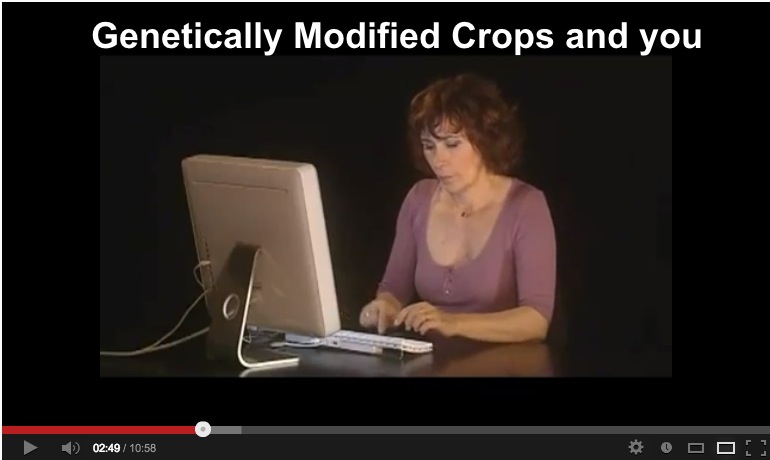I do not know the man, and came upon his blog by accident. The blog was titled :
#GMOFAQ How Bt corn and Roundup Ready soy work, and why they should not scare you.
Link : http://www.michaeleisen.org/blog/?p=1135&cpage=1#comment-262275
More than the article itself, I got engrossed by the exchanges made under it by the general public, some apparently using anonymous names.
I could not resist putting up my own comments, which is preserved here in blue:
There are a lot of forces acting for and against introduction of GM crops in India.
I live in Canada but was born in India and have quite a lot of links with grassroots organizations in India involved in many fields of work mostly to do with preservation of ecology and addressing poverty related issues for the marginal people in India.
For the Indian context, there are many issues relating to GM crops and why these are resisted at the grassroots level. I shall cover in this post only one of them :
Biopiracy
Often this issue slips under the radar, under the weight of other related issues of GM crops. Basically, this recent act, coming under the Ministry of Environment and Forest, and in force since 2002 – has in its scope the following opening text :
QUOTE
The Biological Diversity Act 2002 was born out of India’s attempt to realize the objectives enshrined in the United Nations Convention on Biological Diversity (CBD) 1992 which recognizes the sovereign rights of states to use their own Biological Resources. The Act aims at the conservation of biological resources and associated knowledge as well as facilitating access to them in a sustainable manner and through a just process For purposes of implementing the objects of the Act it establishes the National Biodiversity Authority in Chennai.
UNQUOTE

What it means, in the case of plant, animals and micro-organism families that are not imported but locally evolved, or had been imported in the long lost past and has evolved further within India to acquire region specific traits that make it suitable to the soil and the climate – including those that have been used by the folk and indigenous people of India for medicinal purposes, as tonics or as cure to some illness or injury, and those plants that are used as food, either cultivated or wildly grown, are the collective intellectual property of the nation.
This means, the genome of this biomass may not be copied or studied, or tinkered with, without explicit permission of the Government of India.
So, studying the genome without explicit conditional permission, and then genetic ally tinkering of same and eventual patenting of any modified life form, essentially violates the Biodiversity Preservation Act of 2002. A new term has been coined to represent this violation – Biopiracy.
So, in the case of Bt.Brinjal, where 4 different types of Indian Brinjal were studied, genome sequenced and Bt.variety developed, violated the above act. This was more or less outside of the public brouhaha about if Bt. Bringal should or should not be introduced on Indian farms.
Between 2002 and now, India has a different Govt in place, and essentially in cahoots with the GM corporations. Nonetheless, the act has not been repealed, There is enough prima facie evidence that the law has been violated. The Govt of India, according to this law, should not only ban introduction of BT. Cotton, it should sue Monsanto and its Indian partner for violation of the act and penalize them, perhaps removing their license to do any further business in India.
But, as I said, the new Govt is a different animal, and was dragging its feet on the issue. So an NGO firm has initiated a Public Interest Litigation in a provincial high court, against the Govt of India, in order to force it to sue Monsanto. The case has progressed to the stage where the court has ordered the relevant provincial authority to issue a notice to the Govt to file a case against Monsanto. A lot of strange drama is going on about it, with Govt officials involved in the case suddenly getting transferred etc.
This case is catching peoples attention. There is another one pending at the Supreme court about banning or putting a moratorium on a majority of the GM crops till various long term effects are known – being investigated by an expert committee comprising of six scientists, three on behalf of the Govt and three for the petitioners.
These two cases are sending a bit of a shiver in the whole GM wagon train, and a worry creeping in – if my grassroots friends are correct – that if the cards are not played well at this time by the GMO lobby, the whole game might be lost.
This issue – basically of Biopiracy, is the first of my many objections to the introduction of GM crops in India.
Cheers.


